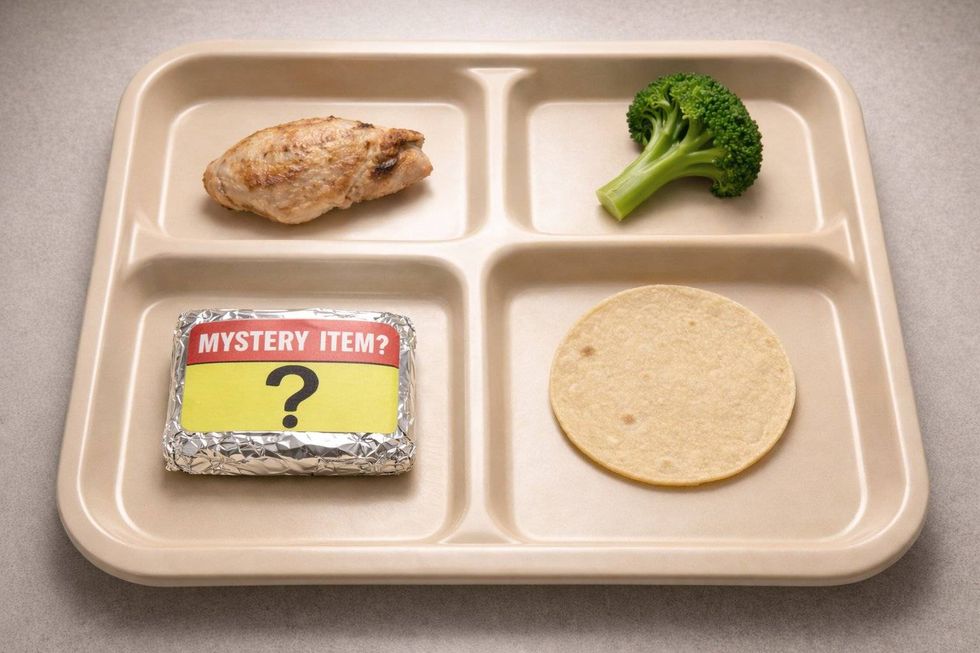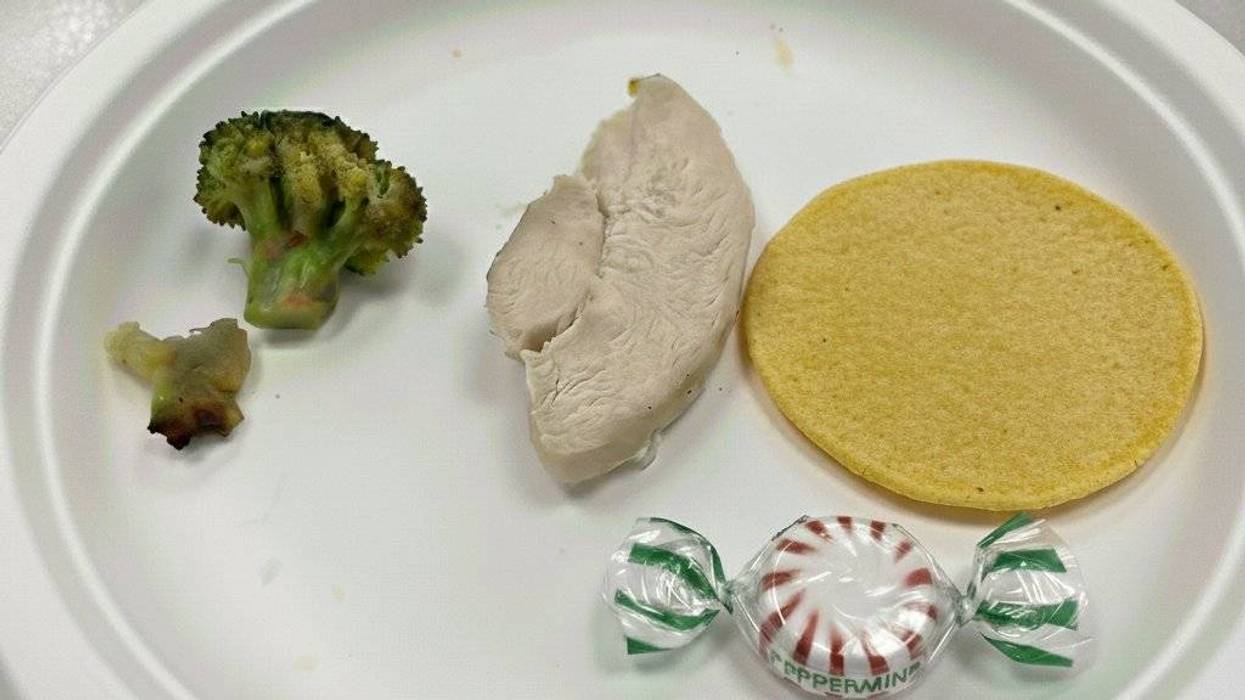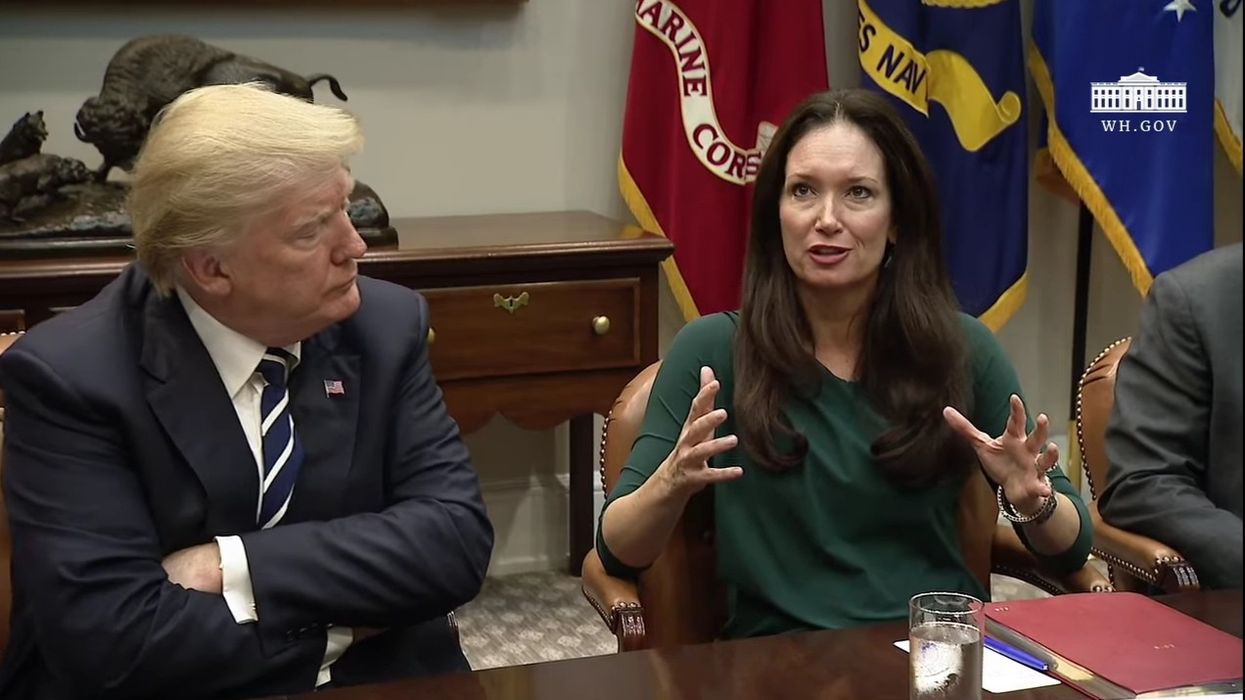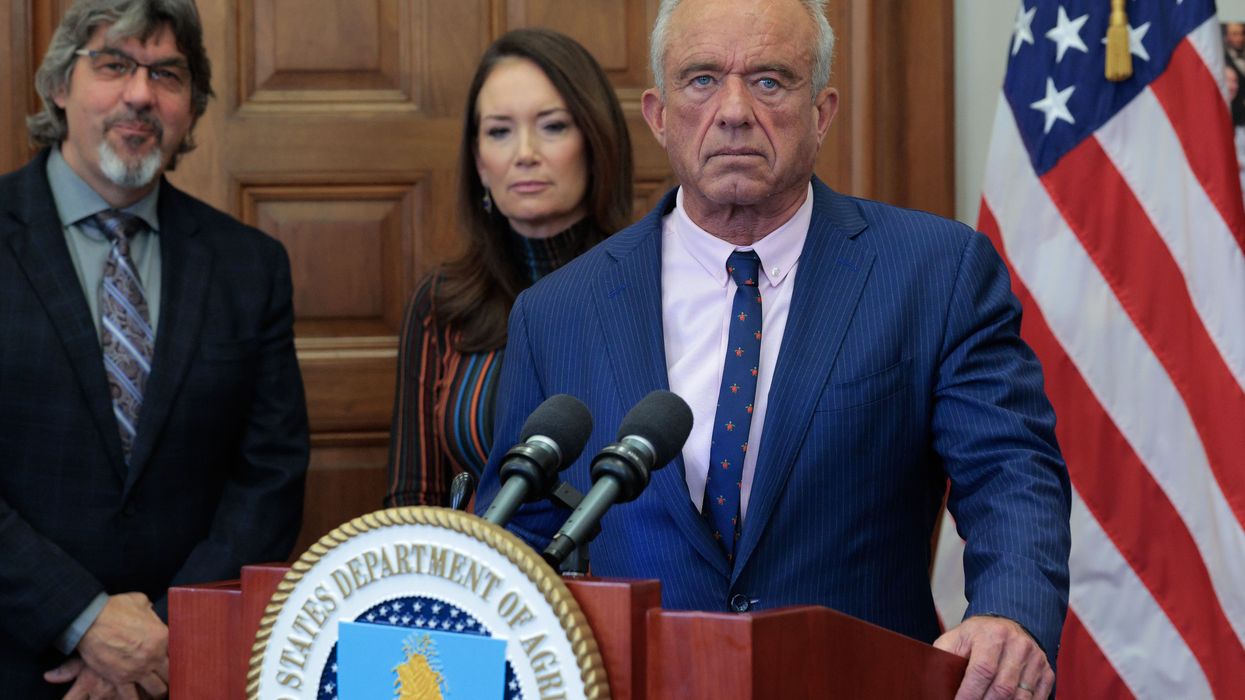The Trump Administration's $3 Meal: 'A Piece of Chicken, a Piece of Broccoli, Corn Tortilla, and One Other Thing'
"What a slap in the face to struggling working families," Rep. Pramila Jayapal said of Agriculture Secretary Brooke Rollins' interview.
The Trump administration was again blasted for grocery prices this week after Agriculture Secretary Brooke Rollins discussed the new federal dietary guidelines during a NewsNation appearance.
"We've run over 1,000 simulations," Rollins said in a clip shared on social media by journalist Aaron Rupar on Wednesday. "It can cost around $3 a meal for a piece of chicken, a piece of broccoli, corn tortilla, and one other thing."
"So there is a way to do this that actually will save the average American consumer money," Rollins continued, pushing back against host Connell McShane's inquiry about whether the new guidelines expect people to spend more money on food.
The Guardian noted that "data from the consumer price index, as referenced by McShane, showed that food prices kept rising in December, increasing by 0.7%, the biggest month-to-month jump since October 2022. Prices for produce rose 0.5%, coffee increased by 1.9%, and beef went up 1% over the month and 16.4% compared with a year earlier."
Responding to the clip, Chasten Glezman Buttigieg, an author and teacher married to former Democratic Transportation Secretary Pete Buttigieg, said, "Private jets and tax breaks for them and their rich friends, and one piece of broccoli *AND* a tortilla for you!"
Noting a similarly mocked statement from President Donald Trump before the holidays, Civic Media political editor Dan Shafer said: "You will eat one piece of broccoli and your child will have one Christmas toy. This is the Golden Age."
Other critics, including Democratic lawmakers, used artificial intelligence programs to generate images of what they called Rollins' proposed "depression meal."
"Due to Trump's tariffs, last month was the largest spike in grocery prices in three years. So now this is what the Trump administration suggests you can afford for a meal," wrote US Rep. Ted Lieu (D-Calif.), sharing the image below.

Rep. Jason Crow (D-Colo.) said: "Trump gets a gold-plated new ballroom. You get a piece of chicken, broccoli, and one corn tortilla."

"MAHA!" declared Democrats on the House Ways and Means Committee, invoking a phrase seized on by Trump after he won the support of Health and Human Services Secretary Robert F. Kennedy Jr., "Make America Healthy Again."

Sharing an edited video clip of Rollins' interview, Rep. Pramila Jayapal (D-Wash.) said, "What a slap in the face to struggling working families."
Marlow Stern, who teaches at the Columbia University Graduate School of Journalism, suggested that "you should eat prison meals" was "prob not the best message" from the Trump administration to the public.
The video went viral as the congressional Joint Economic Committee's (JEC) Democratic staff on Thursday released a report showing that "a typical American family paid $310 more for groceries" during the first year of Trump's second term compared to 2024.
Some of the biggest estimated jumps in annual cost documented in the report were for coffee (+$76.06), ground beef (+$70.99), eggs (+$51.66), candy (+$47.21), potato chips and salty snacks (+$22.59), orange juice (+$14.18), whole chickens (+$12.51), and chicken breasts (+$11.55).
"Despite President Trump's promises that he would lower grocery costs, families across America are paying higher prices at the cash register," said Sen. Maggie Hassan (D-NH), the JEC ranking member. "This report provides proof of what the American people are experiencing every day: Costs are too high, and Trump's policies are only making them worse."


